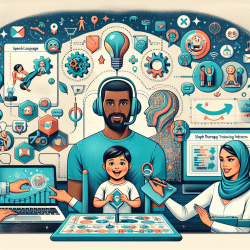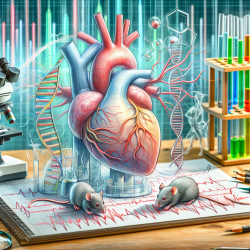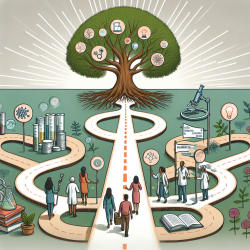Introduction
As practitioners in the field of speech-language pathology, we are constantly seeking ways to enhance our skills and improve outcomes for children. The research article "Human Responses and Adaptation in a Changing Climate: A Framework Integrating Biological, Psychological, and Behavioural Aspects" provides valuable insights that can be applied to our work with children. This blog will explore how we can leverage the findings of this research to create better outcomes for the children we serve.
Understanding the Framework
The research presents a comprehensive framework that integrates biological, psychological, and behavioral aspects to understand human responses to climate change. This multidisciplinary approach highlights the complex interplay between environmental changes and human adaptation. For speech-language pathologists, understanding these dynamics is crucial as it can influence the development and well-being of children.
Applying Insights to Child Development
Climate change can impact children's development in various ways, from affecting their physical health to influencing their emotional and psychological well-being. Here are some key takeaways from the research that can be applied to our practice:
- Biological Aspects: Changes in climate can affect children's health, which in turn can impact their communication abilities. Practitioners should be aware of these potential impacts and work closely with healthcare providers to address any health-related issues.
- Psychological Aspects: The research highlights the importance of resilience and adaptation. By fostering resilience in children, we can help them better cope with the challenges posed by climate change. This can be achieved through supportive environments and targeted interventions that build emotional strength.
- Behavioral Aspects: Understanding how climate change influences behavior can inform our approaches to therapy. Encouraging adaptive behaviors and promoting positive coping strategies can enhance children's ability to navigate changes in their environment.
Encouraging Further Research
While the research provides a solid foundation, it also underscores the need for ongoing investigation into the effects of climate change on child development. Practitioners are encouraged to engage in research activities that explore these dynamics further. Collaboration with researchers across disciplines can lead to innovative solutions and improved therapeutic outcomes.
Conclusion
By integrating the insights from the research on human responses and adaptation to climate change, speech-language pathologists can enhance their practice and create better outcomes for children. Understanding the biological, psychological, and behavioral aspects of adaptation allows us to tailor our interventions to meet the unique needs of each child. As we continue to learn and adapt, we are better equipped to support the development and well-being of the children we serve.
To read the original research paper, please follow this link: Human Responses and Adaptation in a Changing Climate: A Framework Integrating Biological, Psychological, and Behavioural Aspects.










